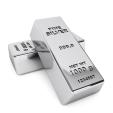S&P500 Has Worst Week Since April on Europe, Valuations
New York (July 13) The Standard & Poor’s 500 Index completed its worst week since April, as signs of financial stress in Europe and speculation the recent rally is overdone pulled stocks down from record levels.
Netflix Inc. retreated 6.9 percent as Internet stocks tumbled with small-cap shares. JPMorgan Chase & Co. and Wells Fargo & Co. slid at least 2.2 percent as concern about corporate debt in Portugal weighed on bank shares. Equity declines led to a surge in volatility after a gauge of investor fear had fallen to a seven-year low. Alcoa Inc. rose 6.6 percent amid the start of corporate earnings season.
The S&P 500 slumped 0.9 percent to 1,967.57 for the five days, after closing at an all-time high on July 3. The Dow Jones Industrial Average lost 124.45 points, or 0.7 percent, to 16,943.81, after topping 17,000 (INDU) for the first time during the previous week. The Russell 2000 Index tumbled 4 percent, its worst weekly showing in more than two years.
“This Portugal news, while in and of itself isn’t going to bring down the European economy, is a reminder that things aren’t fixed yet,” Jordan Irving, co-founder of Conshohocken, Pennsylvania-based Irving Magee Investment Management, said in a phone interview. The firm manages $225 million in assets. “Things may be more tenuous than investors believe, and some bets are off the table.”
The S&P 500 fell the most in a month on July 8, while the Russell 2000 capped its biggest two-day slide since April, on speculation equities had risen too far, too fast. Raymond James & Associates Inc. said stocks are vulnerable to losses and Citigroup Inc.’s chief U.S. equity strategist cited concerns for a “severe” pullback.
Portuguese Credit
Equities extended losses as missed debt payments by a company linked to Portugal’s second-largest lender fueled concern about the strength of the European recovery.
The banking concerns and indications that euro-area growth may be slowing sent European stocks to their worst week since March. The Stoxx Europe 600 Index retreated 3.2 percent, as a gauge of lenders fell 4.1 percent, the most since April.
Asian stocks snapped the longest streak of weekly gains in more than two years as concern about financial risks in Europe spurred a rally in the yen. The MSCI Asia Pacific Index (MXAP) slid 1.1 percent, the first decline in nine weeks after equity valuations touched the highest this year on July 4.
The Chicago Board Options Exchange Volatility Index jumped 17 percent to 12.08 for its biggest rally in three months. The gauge known as the VIX closed July 3 at the lowest since 2007. Its European counterpart, the VStoxx Index, surged 25 percent to 16.34 in the week for the strongest gain in nearly six months.
Risk Contagion
“You’re in a period where the market has had very little negative news, in particular on the credit or sovereign debt side,” Chad Morganlander, a money manager at St. Louis-based Stifel, Nicolaus & Co., which oversees about $160 billion, said in a phone interview. “Any uncertainty bleeds into all risk markets, including equities.”
The S&P 500 (SPX) has not had a drop of 10 percent in more than two years and the gauge trades at a valuation of 18 times reported earnings, the highest since 2010.
Minutes of the Fed’s June meeting, released July 9, showed officials have agreed they’ll end their asset-purchase program in October if the economy holds up. At the same time, the policy makers said the central bank should continue to support favorable financial conditions needed to sustain growth, according to the minutes.
Three rounds of Fed bond-buying have helped propel the S&P 500 higher by more than 190 percent during the current five-year bull market.
Internet Stocks
Equity losses in the week were concentrated in Internet shares and small caps that were among the bull market’s biggest winners. Netflix sank 6.9 percent, while Pandora Media Inc. lost 11 percent, its biggest decline since April. Both stocks more than doubled last year.
The Dow Jones Internet Composite Index fell 3.2 percent for its first weekly decline since May 9. The slide erased the gauge’s advance this year.
Lumber Liquidators Holdings Inc. dropped 28 percent for one of the biggest declines in the Russell 2000. The flooring retailer reported weaker-than-estimated earnings. Rival Home Depot Inc. sank 3 percent for the biggest drop in the Dow.
Alcoa Inc. gained 6.6 percent, the ninth straight week of gains, its longest streak in 14 years. The U.S. aluminum producer unofficially kicked off the earnings season by reporting better-than-forecast profit on the strength of its smelting business.
Bank Earnings
Wells Fargo, the world’s most valuable bank, slid 2.9 percent after saying profit increased even as the lender’s per-share earnings failed to top the preceding quarter’s for the first time since 2009.
JPMorgan Chase lost 2.2 percent to pace declines among financial stocks, which fell 1.6 percent, the most since April.
More than 150 companies in the S&P 500 are scheduled to report quarterly results in the next two weeks, including Citigroup Inc., JPMorgan Chase, Goldman Sachs Group Inc. and Johnson & Johnson.
Profit at S&P 500 companies probably rose 4.5 percent in the three months through June, while sales gained 3.1 percent, estimates compiled by Bloomberg show. The forecasts are lower than they were at the start of April, when analysts predicted a 7.3 percent rise in earnings and 3.7 percent sales increase.
“The market will become more volatile around those companies with earnings scheduled,” David Lyon, San Francisco-based global equities specialist at JPMorgan Private Bank, said in a phone interview. The firm manages just about $1 trillion. “The next few weeks will be extremely important to start the second half of the year.”
Source: Bloomberg













